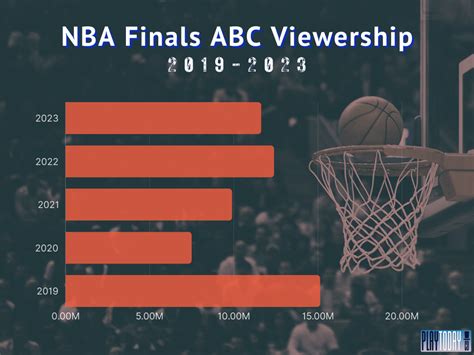
Tim Duncan, a five-time NBA champion and San Antonio Spurs legend, has voiced strong criticisms of the modern NBA, stating, “There’s a lot of things I hate about it!” in a recent interview. Duncan, known for his fundamental, team-oriented style of play, expressed his concerns about the evolution of the game, pointing towards the emphasis on individual performance and the perceived lack of physicality.
Duncan’s comments, made during an interview on the “All The Smoke” podcast with former NBA players Matt Barnes and Stephen Jackson, have ignited a debate among fans and analysts about the current state of the league. While not specifying exact elements, his broad disapproval suggests a disconnect between the traditional values he embodied and the contemporary NBA landscape. This critique offers a notable perspective from one of the sport’s most respected figures, known for his understated demeanor and consistent excellence.
Duncan’s Hall of Fame career was characterized by his commitment to the Spurs’ system, his unselfish play, and his dominant presence on both ends of the court. He was the epitome of a team player, prioritizing winning above individual accolades. His criticisms are particularly poignant, given his historical standing and the stark contrast between his era and the present.
A Disconnect with the Modern Game
While Duncan did not delve into specific details regarding what he dislikes, the context of his career provides insight into potential reasons for his dissatisfaction. The NBA has undergone significant changes since Duncan’s retirement in 2016. These changes include:
-
Increased Emphasis on Three-Point Shooting: The modern NBA is heavily reliant on three-point shooting, with teams often prioritizing perimeter shots over traditional post play. This shift has altered offensive strategies and player development, with a greater emphasis on shooting skill at all positions. During Duncan’s era, post play and mid-range shots were more prominent offensive features.
-
Rise of Player Empowerment: Players have gained considerable power in recent years, influencing team decisions and often dictating their destinations through free agency or trade demands. This contrasts with the more team-centric environment Duncan thrived in, where loyalty and organizational stability were highly valued.
-
Focus on Individual Statistics: Individual statistics and highlight-reel plays often overshadow team success in the modern NBA. The emphasis on individual performance can lead to a prioritization of personal accolades over team goals, a departure from Duncan’s consistent team-first mentality.
-
Decreased Physicality: Many observers believe the modern NBA is less physical than in previous eras, with rule changes designed to promote scoring and protect offensive players. Duncan, a dominant post player known for his physical style of play, may view this shift as detrimental to the game.
Duncan’s Career: A Foundation of Teamwork and Fundamentals
Tim Duncan’s career provides a stark contrast to the modern NBA landscape. He was drafted by the San Antonio Spurs in 1997 and spent his entire 19-year career with the team, becoming the cornerstone of one of the most successful dynasties in NBA history. His achievements include:
- Five NBA Championships: Duncan led the Spurs to championships in 1999, 2003, 2005, 2007, and 2014.
- Three NBA Finals MVP Awards: He earned Finals MVP honors in 1999, 2003, and 2005.
- Two NBA MVP Awards: Duncan was named the league’s MVP in 2002 and 2003.
- 15-Time All-Star Selection: He was selected to the All-Star game 15 times throughout his career.
- 15-Time All-NBA Selection: Duncan was named to the All-NBA team 15 times.
- 15-Time All-Defensive Team Selection: He was recognized for his defensive prowess with 15 All-Defensive team selections.
Duncan’s success was rooted in his fundamental skills, his unselfish play, and his unwavering commitment to the Spurs’ system. He was known for his consistent performance, his ability to elevate his teammates, and his leadership both on and off the court. His partnership with Tony Parker and Manu Ginobili formed the “Big Three,” a trio that epitomized teamwork and sustained success.
The Evolution of the NBA: A Constant Debate
The evolution of the NBA is a constant source of debate among fans, analysts, and former players. Some argue that the modern game is more exciting and skilled than ever before, with increased scoring, dazzling athleticism, and innovative offensive strategies. Others, like Duncan, lament the perceived decline in physicality, the emphasis on individual performance, and the diminished importance of teamwork.
The NBA has always adapted to changing trends and player preferences. Rule changes, stylistic shifts, and the emergence of new talent have shaped the league’s landscape over the years. The current era is characterized by:
- Pace and Space: Teams prioritize fast-paced offenses with an emphasis on spacing the floor to create driving lanes and open three-point shots.
- Positionless Basketball: Players are increasingly versatile, capable of playing multiple positions and contributing in various ways.
- Data Analytics: Teams rely heavily on data analytics to inform their strategies, player evaluations, and decision-making processes.
These changes have led to a more perimeter-oriented game, with less emphasis on traditional post play and isolation scoring. While some view this evolution as progress, others argue that it has diluted the fundamental aspects of the game.
The Impact of Duncan’s Critique
Tim Duncan’s criticisms carry significant weight due to his legendary status and his reputation for integrity. His comments are likely to resonate with fans who appreciate the traditional values of basketball and who may share his concerns about the modern game.
His perspective offers a valuable counterpoint to the prevailing narrative that celebrates the evolution of the NBA. It prompts reflection on the trade-offs between individual brilliance and team cohesion, between offensive firepower and defensive intensity, and between stylistic innovation and fundamental principles.
Duncan’s critique may also influence current and future players, encouraging them to prioritize teamwork, develop well-rounded skill sets, and appreciate the importance of defense. His legacy extends beyond his on-court achievements; it encompasses his commitment to excellence, his humility, and his unwavering dedication to the Spurs’ organization.
While the NBA continues to evolve, Duncan’s voice serves as a reminder of the enduring values that have made basketball one of the world’s most popular sports. His perspective encourages a balanced assessment of the game’s current state and a renewed appreciation for the principles that have stood the test of time.
Duncan’s Potential Specific Concerns:
It’s crucial to remember that Duncan did not explicitly state what he hates. However, based on his history, personality, and the style of play he embodied, we can reasonably infer some potential sources of his displeasure:
-
Lack of Fundamental Play: Duncan was a master of the fundamentals – footwork, positioning, rebounding, and defense. He might see a decline in these basic skills in the modern game, with more emphasis on flashy moves and highlight-reel plays. The emphasis on three-point shooting could also be perceived as a departure from the inside-out game he perfected.
-
Defensive Intensity: Duncan was a dominant defender known for his rim protection and his ability to guard multiple positions. He might feel that the modern NBA lacks the defensive intensity and commitment he brought to the court. Rule changes that favor offensive players could contribute to this perception.
-
Emphasis on Individualism: Duncan was the ultimate team player, always prioritizing the success of the Spurs over his individual accolades. He might be critical of the emphasis on individual statistics and the perceived lack of loyalty in the modern NBA. The rise of player empowerment, while beneficial to players, could be seen as undermining team cohesion.
-
Flopping and Gamesmanship: Duncan was known for his stoic demeanor and his refusal to engage in theatrics. He might disapprove of the increasing prevalence of flopping and other forms of gamesmanship in the modern NBA.
-
The “Super Team” Era: While not explicitly stated, Duncan’s career was built on sustained team building and organic growth. The modern trend of players joining forces to form “super teams” might conflict with his belief in building a championship contender through patience and player development.
The Broader Context of NBA Criticism from Legends
Duncan is not the first NBA legend to express concerns about the evolution of the game. Many former players have voiced similar criticisms, often citing the perceived decline in physicality, the emphasis on individual performance, and the diminished importance of teamwork.
These critiques are often rooted in a nostalgia for a perceived “golden age” of basketball, when the game was seen as more fundamentally sound and less driven by commercial interests. However, it’s important to acknowledge that every era of the NBA has its own unique characteristics and challenges.
The modern NBA is undoubtedly different from the NBA of the 1980s, 1990s, or 2000s. But change is inevitable, and the league has consistently adapted to evolving trends and player preferences. While it’s important to preserve the fundamental values of the game, it’s also essential to embrace innovation and celebrate the unique talents of each generation of players.
Conclusion:
Tim Duncan’s critique of the modern NBA offers a valuable perspective from one of the game’s most respected figures. While his specific concerns remain unstated, his comments highlight the ongoing debate about the evolution of the league and the trade-offs between tradition and innovation. His legacy as a champion, a teammate, and a leader serves as a reminder of the enduring values that have made basketball one of the world’s most popular sports. Whether his concerns spark change or simply serve as a reflection of a bygone era, Duncan’s words carry weight and contribute to the ongoing conversation about the state of the NBA. His unvarnished opinion highlights the tension between the romanticized past and the data-driven, player-empowered present. It is a conversation that will undoubtedly continue as the league continues to evolve.
Frequently Asked Questions (FAQ):
1. What exactly did Tim Duncan say about the NBA?
Tim Duncan stated, “There’s a lot of things I hate about it!” during an interview on the “All The Smoke” podcast. While he didn’t explicitly detail his dislikes, the statement reflects a general dissatisfaction with the current state of the league.
2. What are some potential reasons Tim Duncan might dislike the modern NBA?
Based on his playing style and values, potential reasons include the increased emphasis on three-point shooting, decreased physicality, focus on individual statistics over team play, the rise of player empowerment, and a perceived decline in fundamental skills.
3. How has the NBA changed since Tim Duncan retired?
Since Duncan’s retirement in 2016, the NBA has seen a greater emphasis on pace and space, positionless basketball, and data analytics. Three-point shooting has become more prevalent, and players have gained more power in influencing team decisions. Rule changes have also led to a less physical game.
4. What are some of Tim Duncan’s accomplishments in the NBA?
Tim Duncan won five NBA championships with the San Antonio Spurs, earned three NBA Finals MVP awards, and was named the league’s MVP twice. He was a 15-time All-Star, a 15-time All-NBA selection, and a 15-time All-Defensive Team selection.
5. Is Tim Duncan the only former NBA player to criticize the modern game?
No, many former NBA players have voiced concerns about the evolution of the game, often citing the perceived decline in physicality, the emphasis on individual performance, and the diminished importance of teamwork. These criticisms are often rooted in a nostalgia for a perceived “golden age” of basketball.









